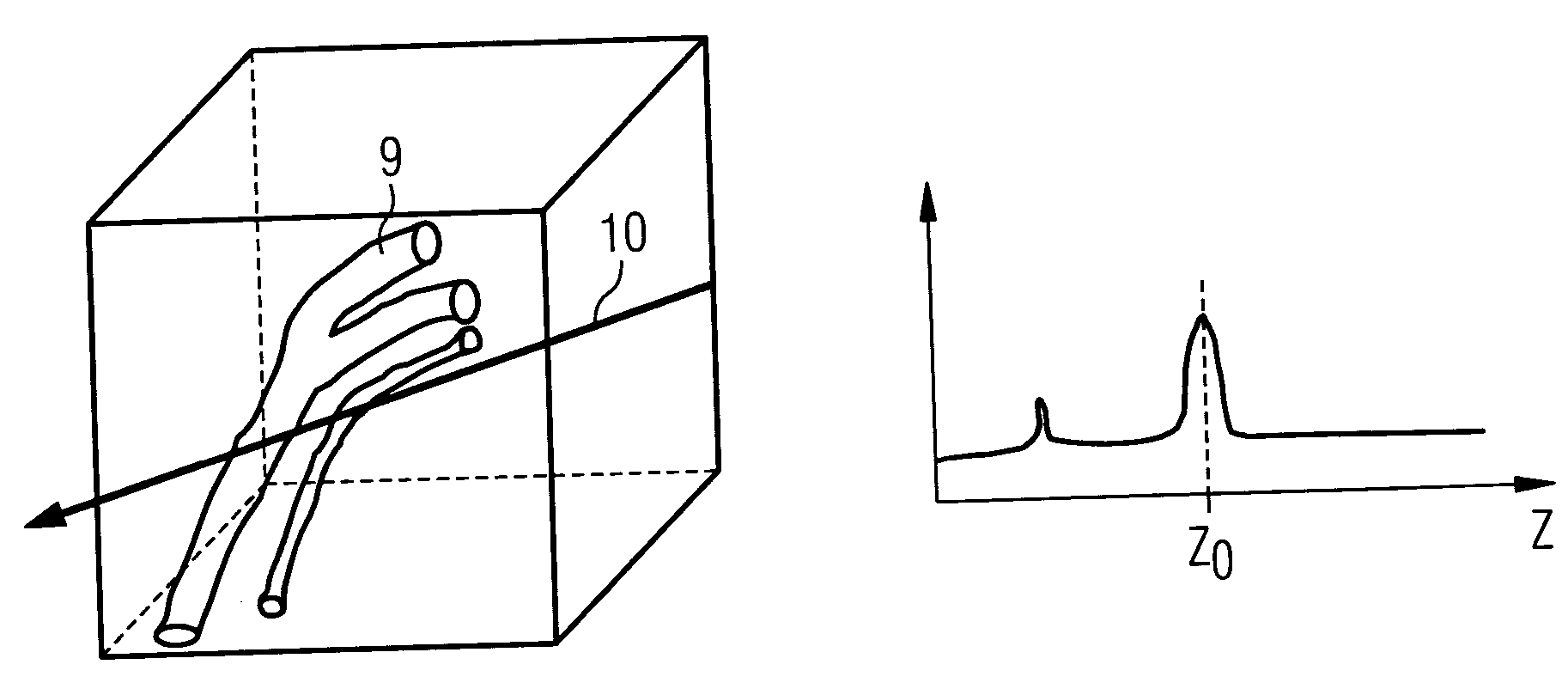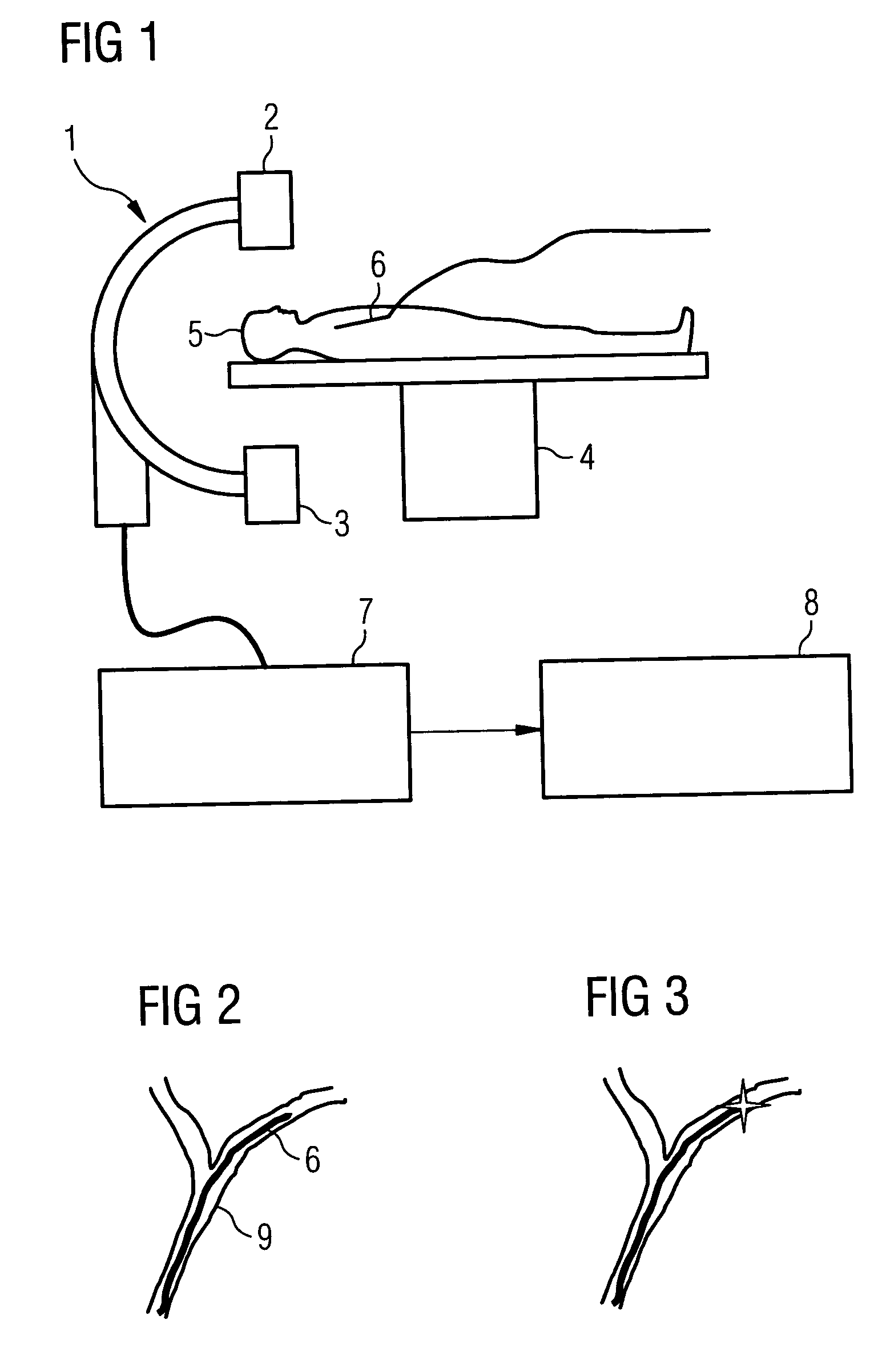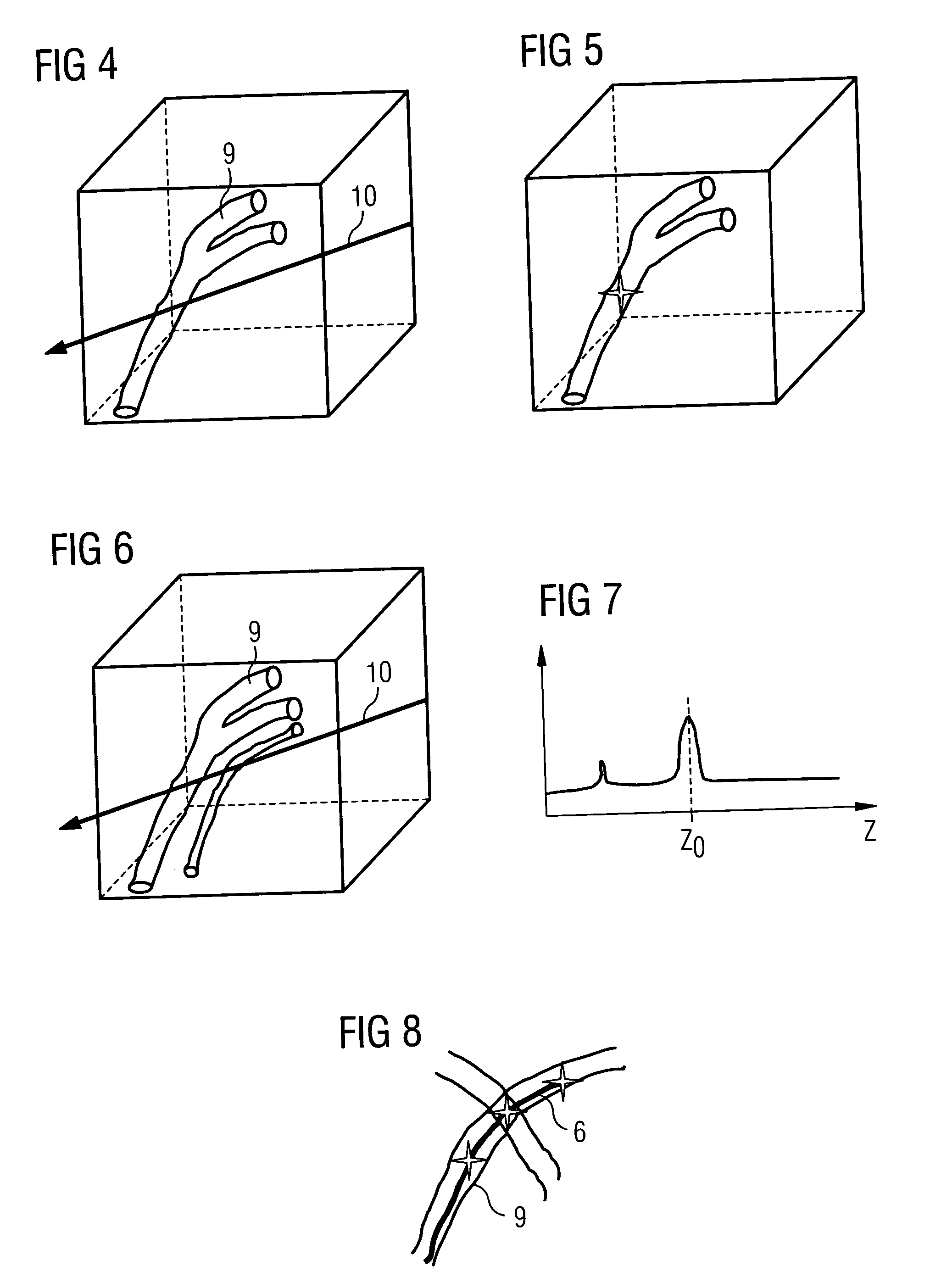Method for determining the position of an instrument with an x-ray system
a technology of x-ray system and position determination, which is applied in the field of method for determining the position of an instrument with an x-ray system, can solve the problems of time-consuming change, difficult control of this type of instrument, and inability to determine the position of the instrument in two dimensions, etc., and achieves the effect of less complicated and flexible us
- Summary
- Abstract
- Description
- Claims
- Application Information
AI Technical Summary
Benefits of technology
Problems solved by technology
Method used
Image
Examples
Embodiment Construction
[0027]The present example is designed to illustrate the monitoring of the guidance of a catheter in blood vessels of the patient in accordance with the present method. This type of catheter is restricted to vessel interventions in the area of blood vessels. In such a case for example 3D image data can be provided from a 3D angiography image of the patient.
[0028]This 3D image data record can in this case be recorded either before the introduction of the catheter or also after the introduction of the catheter directly before the first 3D position is determined. When an image is recorded after the introduction of the catheter, an x-ray system is required which makes it possible to record such a data record using 3D rotation angiography for example. In other cases the imaging modality for the recording of the 3D image data record can be completely independent of the x-ray system used for the intervention. The 3D image data record recorded is registered with the x-ray system used. In thi...
PUM
 Login to View More
Login to View More Abstract
Description
Claims
Application Information
 Login to View More
Login to View More - R&D
- Intellectual Property
- Life Sciences
- Materials
- Tech Scout
- Unparalleled Data Quality
- Higher Quality Content
- 60% Fewer Hallucinations
Browse by: Latest US Patents, China's latest patents, Technical Efficacy Thesaurus, Application Domain, Technology Topic, Popular Technical Reports.
© 2025 PatSnap. All rights reserved.Legal|Privacy policy|Modern Slavery Act Transparency Statement|Sitemap|About US| Contact US: help@patsnap.com



